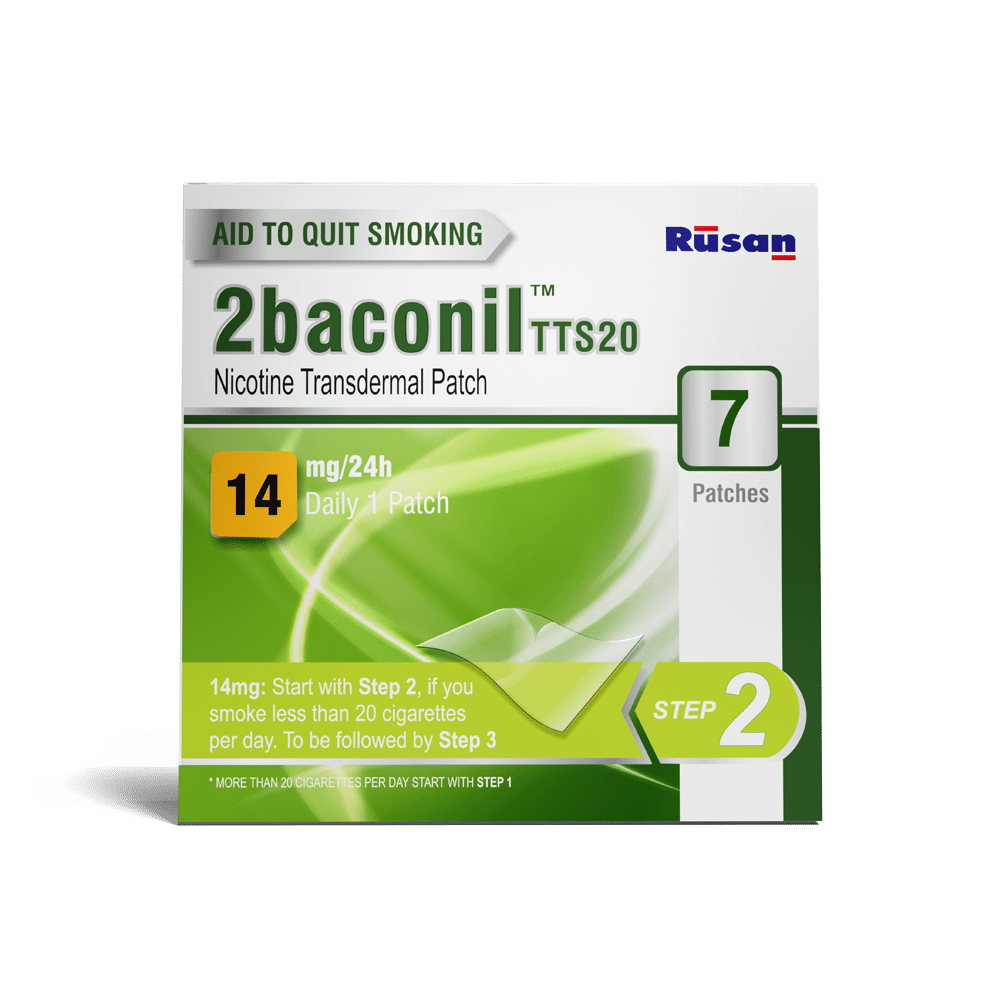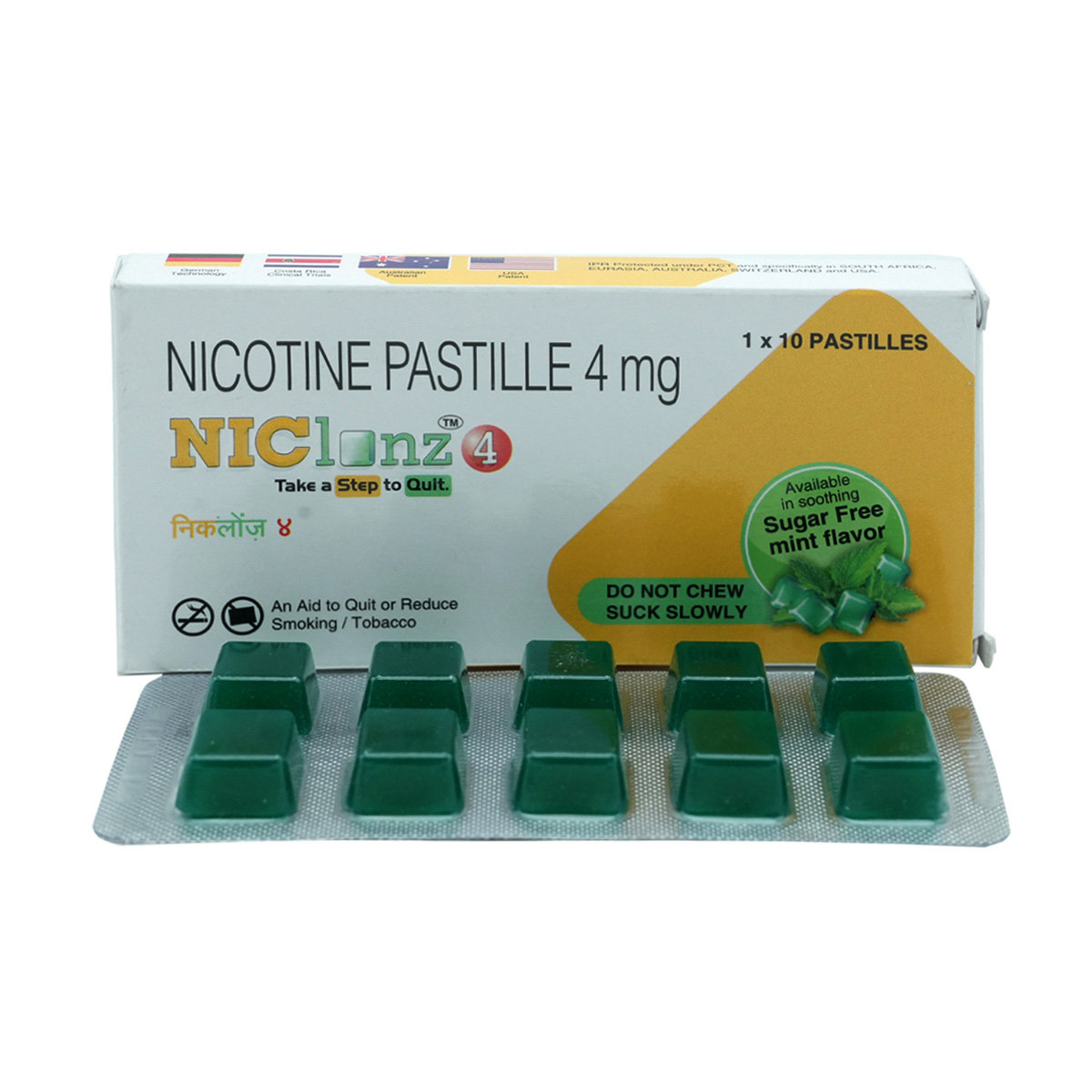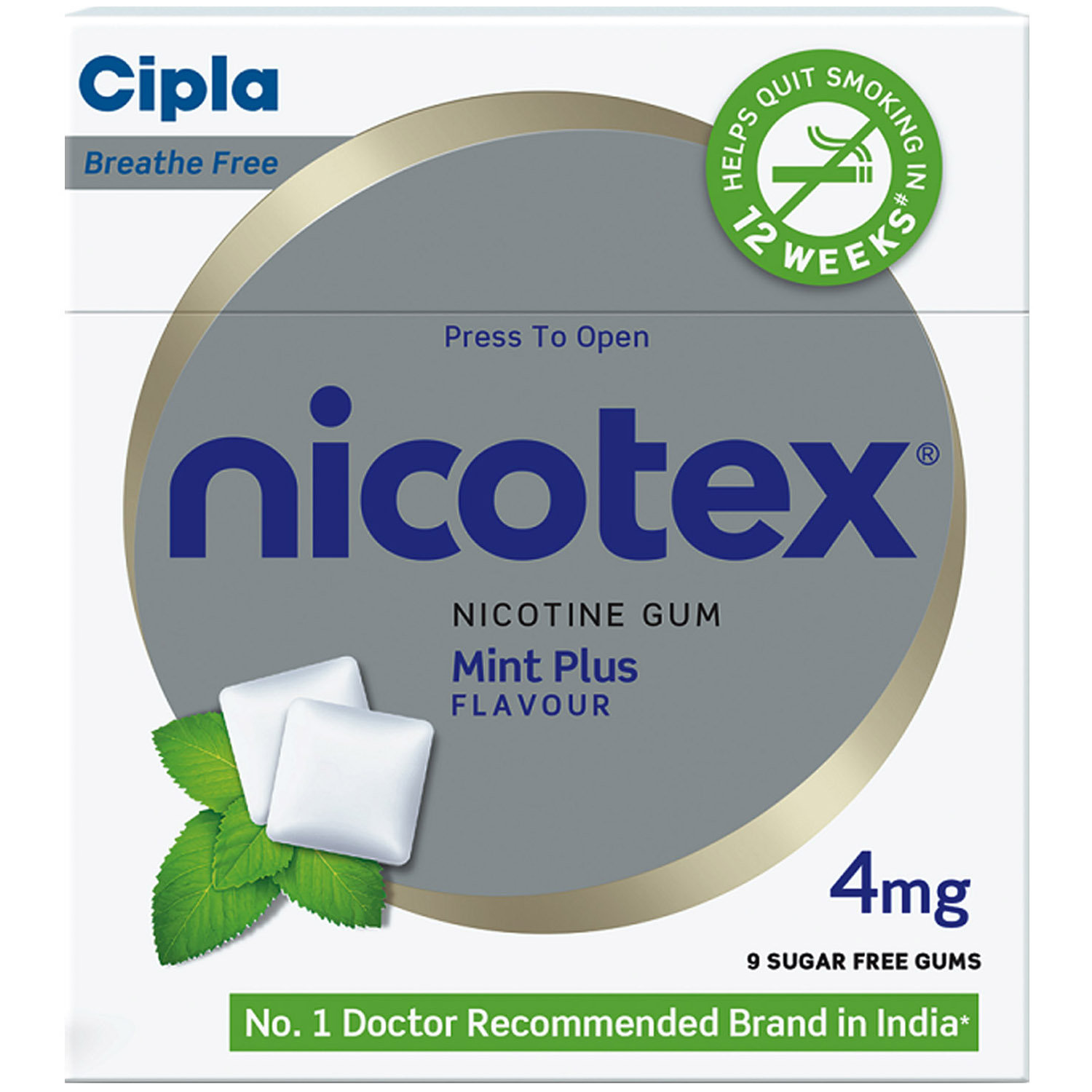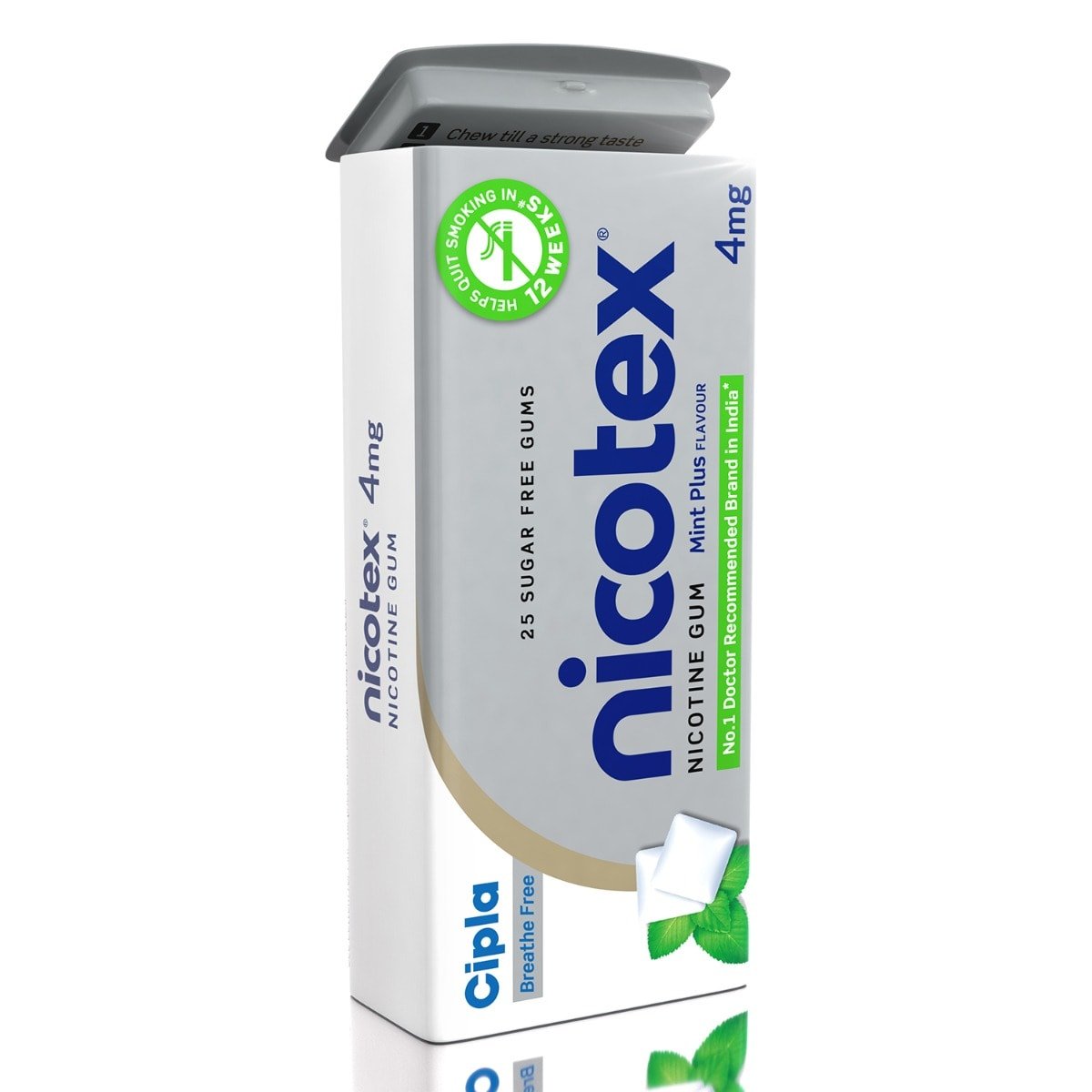Nicotine
About Nicotine
Nicotine belongs to a group of medications called nicotine replacement therapy (NRT) used to reduce the craving for smoking and tobacco use. Nicotine is a chemical present in tobacco that causes addiction. Taking nicotine through smoking or chewing tobacco for a prolonged period causes nicotine addiction that increases the risk of various medical problems like heart disease, lung disease and cancer.
Nicotine contains Nicotine that acts as a smoking cessation aid. It helps in quitting nicotine (tobacco) use by slowly adjusting the body to have less craving to use nicotine. As a result, over a period of time, a person does not crave nicotine anymore.
Take Nicotine as suggested by your doctor. You are advised to take Nicotine for as long as your doctor has suggested it for you based on your medical condition. In some cases, you may experience dizziness, headache, throat irritation, hiccups, dry mouth, nausea, vomiting, stomach pain or itchy skin. Most of these side effects of Nicotine do not require medical attention and gradually resolve over time. However, if the side effects persist or worsen, please consult your doctor.
If you are allergic to Nicotine or any other medicines, please tell your doctor. Avoid taking Nicotine if you are pregnant or breastfeeding, and consult a doctor. Nicotine is not recommended for children below 18 years. Avoid drinking alcohol while taking Nicotine as it may enhance the craving associated with alcohol use and reduce the effectiveness of nicotine gum. You are recommended to avoid using too many gums as it may cause adverse effects such as vomiting, nausea, stomach pain, dizziness, weakness, headache, diarrhoea, hearing disturbance or increased salivation.
Uses of Nicotine
Medicinal Benefits
Nicotine is a Nicotine Replacement Therapy (NRT) agent used to quit smoking or chewing tobacco habit. Nicotine replacement therapy is a WHO-approved program that helps to quit smoking within just 12 weeks. NRT is a part of a total stop-smoking program that includes counselling, support, and behaviour change. Nicotine works by adjusting the body to take less nicotine until a person does not crave nicotine. Nicotine provides a small dose of nicotine without providing harmful elements like tar, carbon mono oxide present in tobacco products.
Directions for Use
Storage
Side Effects of Nicotine
- Dizziness
- Headache
- Throat irritation
- Hiccups
- Dry mouth
- Nausea
- Vomiting
- Stomach pain
- Itchy skin
Drug Warnings
If you are allergic to Nicotine or any other medicines, please tell your doctor. If you have cardiovascular disease, pheochromocytoma, diabetes, hyperthyroidism, peptic ulcer or liver disease, inform your doctor before taking Nicotine. Avoid taking Nicotine if you are pregnant or breastfeeding, and consult a doctor. Nicotine is not recommended for children below 18 years. Avoid drinking alcohol while taking Nicotine as it may enhance the craving associated with alcohol use and may also reduce the effectiveness of nicotine gum. You are recommended to avoid using too many gums as it may cause adverse effects such as vomiting, nausea, stomach pain, dizziness, weakness, headache, diarrhoea, hearing disturbance or increased salivation.
Drug Interactions
Drug-Drug Interaction: Nicotine may interact with bronchodilators (theophylline), antipsychotics (clozapine, olanzapine), drugs for Alzheimer’s disease (tacrine), antiparkinson agent (ropinirole) and antidiabetic drug (insulin).
Drug-Food Interaction: Avoid drinking colas or coffee for 15 minutes after using Nicotine. Also, avoid alcohol consumption with Nicotine.
Drug-Disease Interaction: If you have cardiovascular disease, pheochromocytoma, diabetes, hyperthyroidism, peptic ulcer, kidney or liver problems, inform your doctor before taking Nicotine.
Drug-Drug Interactions Checker List:
Safety Advice

Alcohol
unsafeTaking Nicotine immediately before drinking alcohol will enhance the craving associated with alcohol use and may also reduce the effectiveness of Nicotine. Thus, a person should not consume alcohol while taking Nicotine.

Pregnancy
consult your doctorIf you are pregnant, it is advised to stop smoking without using nicotine replacement therapy. If this seems impossible, please consult a doctor and do as advised. Nicotine should be used during pregnancy only if the doctor has advised it.

Breast Feeding
unsafeNicotine may be excreted in human milk. Please consult a doctor before using Nicotine if you are a breastfeeding mother.

Driving
safe if suggestedNicotine usually does not affect your ability to drive or operate machinery.

Liver
cautionTake Nicotine with caution, especially if you have a history of Liver diseases/conditions. The dose may be adjusted by your doctor as required.

Kidney
cautionTake Nicotine with caution, especially if you have a history of Kidney diseases/conditions. The dose may be adjusted by your doctor as required.

Children
unsafeNicotine is not recommended for children below 18 years unless advised by a doctor.
Habit Forming
Diet & Lifestyle Advise
- Tobacco inhibits the absorption of essential vitamins and nutrients, such as calcium and vitamins C and D. Thus, taking more fruits and vegetables into the diet will help to restore these nutrients and reduce cravings to smoke.
- Ginseng could weaken dopamine, a neurotransmitter in the brain that is connected with pleasure and is released during tobacco consumption. Taking ginseng tea could reduce the craving for smoking.
- Chewing gum and mints is the best way to keep your mouth busy, especially when you feel the urge to smoke, so try to chew your gums more.
- Physical workouts can help a person overcome tobacco cravings. When a person gets involved in physical exercise like cycling, running stairs, and walking, their attention gets diverted to exercise, and they do not feel the urge to take nicotine for some time.
Special Advise
- The patient should immediately stop taking Nicotine if he/she experiences nicotine overdose symptoms like palpitation (rapid heartbeat), dizziness, nausea, vomiting, and diarrhoea.
- If you have dental or gum problems, contact the doctor before using nicotine chewing gums.
Patients Concern
Disease/Condition Glossary
Tobacco (nicotine) addiction: Smoking or chewing tobacco is both a psychological habit and physical dependence. Tobacco contains a chemical called nicotine which is short-lived but highly addictive, and its regular usage can make a person crave it. Breathing or chewing tobacco provides a rush of adrenaline in the bloodstream, and it also triggers dopamine that is associated with the pleasure and reward centre of the brain. Regular nicotine consumption is hazardous for health and puts a person at high risk of lung and heart diseases. However, quitting nicotine is not an easy task. It causes withdrawal symptoms in the body, including irritability, frustration, anger, anxiety, difficulty concentrating, increased appetite, restlessness, depressed mood and insomnia (sleeplessness or lack of sleep).
FAQs
Nicotine contains Nicotine that acts as a smoking cessation aid. It helps in quitting nicotine (tobacco) use by slowly adjusting the body to have less craving to use nicotine.
You are recommended to avoid drinking coffee and soft drinks 15 minutes before taking Nicotine as they may reduce Nicotine absorption.
Nicotine may be used to treat nicotine withdrawal symptoms such as anxiety, irritability, low mood, cravings and restlessness.
You are recommended to avoid taking Nicotine if you have heart disease, irregular heartbeats, a heart attack, stroke, untreated or uncontrolled high blood pressure, diabetes, stomach ulcer, seizure (fits), and if you are on a low table salt (sodium) diet. Therefore, please consult a doctor if you have any of these conditions before taking Nicotine.
You are recommended not to smoke even if you feel the urge to smoke while using Nicotine as it may lead to the accumulation of nicotine in high levels.
Available Medicines for
Nicotine

2baconil TTS20 14mg Nicotine Transdermal 24h Patch 1's
1 Packet
₹701.7 (MRP 825.5)15%Off
cashback: 0








